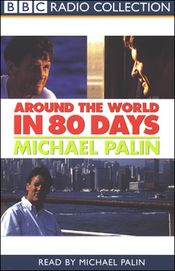 This book is a part of O'Reilly's 97 Things series where individuals contribute short entries to a wiki, which are then edited, from which 97 items are selected for a book.
This book is a part of O'Reilly's 97 Things series where individuals contribute short entries to a wiki, which are then edited, from which 97 items are selected for a book.
I found this book on the shelf at Fry's and after paging through it a bit decided buying it and having a hard copy to let others borrow was worth the cover price as opposed to reading it online. The series is different from most books as the entire contents are available to read for free at http://programmer.97things.oreilly.com/
I feel like I got a lot out of this book, maybe the most valuable was that I need to read the book "The Pragmatic Programmer" ASAP.
Here are links to entries that I found the most interesting, they are really short so give a couple of them a look and let me know what you think:
"…comments should be treated as if they were code. Each comment should add some value for the reader, otherwise it is waste that should be removed or rewritten."
"Follow the advice of The Pragmatic Programmers and learn a new language every year."
"Deliberate practice does not mean doing what you are good at; it means challenging yourself, doing what you are not good at. So it's not necessarily fun."
"Deliberate practice is about learning. About learning that changes you; learning that changes your behavior."
"…when writing any text in your code — whether comments, logging, dialogs, or test data — always ask yourself how it will look if it becomes public."
"Professionals are responsible. They take responsibility for their own careers. They take responsibility for making sure their code works properly. They take responsibility for the quality of their workmanship. They do not abandon their principles when deadlines loom. Indeed, when the pressure mounts, professionals hold ever tighter to the disciplines they know are right."
"…don't read another book. Read code."
"The code should be simple. There should be a minimal number of variables, functions, declarations, and other syntactic language necessities. Extra lines, extra variables… extra anything, really, should be purged. Removed immediately. What's there, what's left, should only be just enough to get the job done, completing the algorithm or performing the calculations. Anything and everything else is just extra unwanted noise, introduced accidentally and obscuring the flow. Hiding the important stuff."
"When pairing, we each bring our collective programming experiences — domain as well as technical — to the problem at hand and can bring unique insight and experience into writing software effectively and efficiently."
"I get better because you make me better through your good actions."
I hope to put what I have learned into practice immediately and look forward to reading more of the entries that did not make it into the book.
I rate this book a 8 out of 10 and believe that anyone who programs will get something out of it. Remember that the entire book and more are available for free via a Creative Commons License at http://programmer.97things.oreilly.com/
 Written by John Huddy and narrated by Stefan Rudnicki, “Storming Las Vegas” is about Jose Vigoa and the robberies that he an his crew committed in Las Vegas.
Written by John Huddy and narrated by Stefan Rudnicki, “Storming Las Vegas” is about Jose Vigoa and the robberies that he an his crew committed in Las Vegas. Michael Palin of Monty Python fame has done a number of shows for the BBC and this book is based on one of those series.
Michael Palin of Monty Python fame has done a number of shows for the BBC and this book is based on one of those series.  What an amazing book. Bill Bryson manages to cover enough of the world’s history to make it really feel like you have learned a little something about everything.
What an amazing book. Bill Bryson manages to cover enough of the world’s history to make it really feel like you have learned a little something about everything. I really liked this book. The author Jim Collins and his team research findings uncovered 5 steps that many companies follow on their path of decline. Full of examples, the book does a great job disseminating their findings in an easy to understand way.
I really liked this book. The author Jim Collins and his team research findings uncovered 5 steps that many companies follow on their path of decline. Full of examples, the book does a great job disseminating their findings in an easy to understand way. This book is a part of O'Reilly's 97 Things series where individuals contribute short entries to a wiki, which are then edited, from which 97 items are selected for a book.
This book is a part of O'Reilly's 97 Things series where individuals contribute short entries to a wiki, which are then edited, from which 97 items are selected for a book.